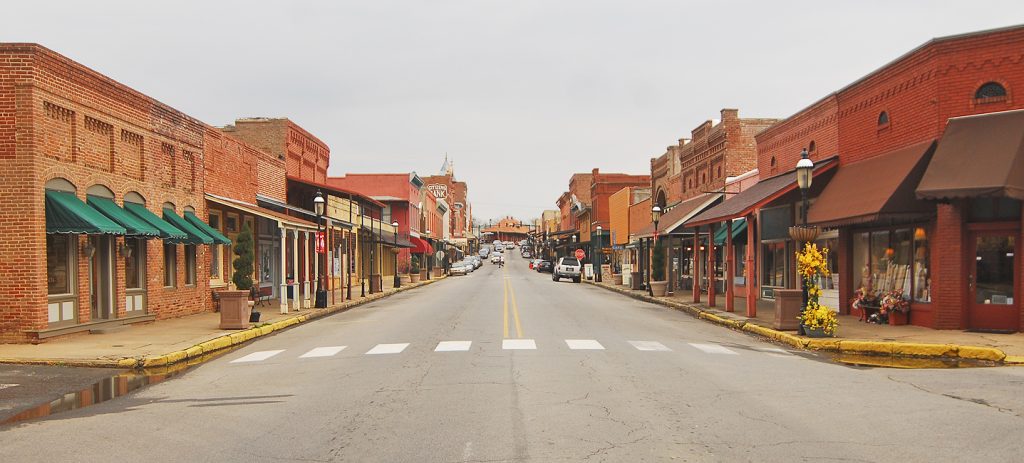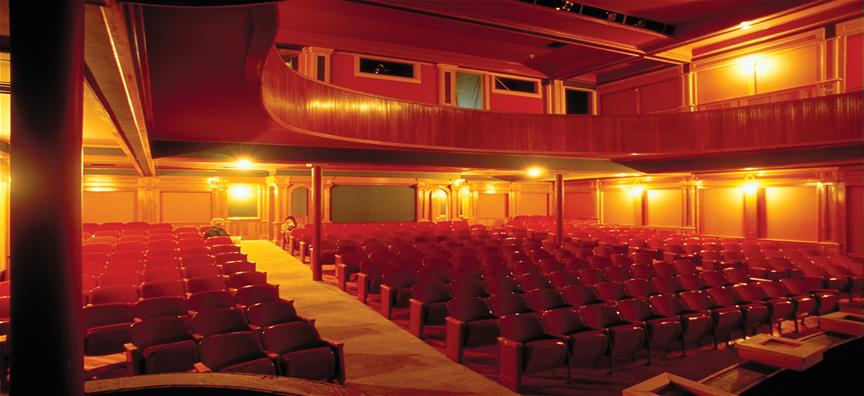By Dr. Curtis Varnell
Lights along the wall cast shadows across the auditorium. The soft cushioned red chairs stand in silent rows, directing one’s attention toward the curtained stage of the King Opera House. A beautiful place, an historic site, and a great place to hold a regional history teacher meeting, the building has seen much in its more than 125-year lifespan. A cornerstone of the Van Buren, AR. historic district, the King Opera House has hosted performers Jenny Lind, William Jennings Bryan, and Bob Burns as well as a host of others.
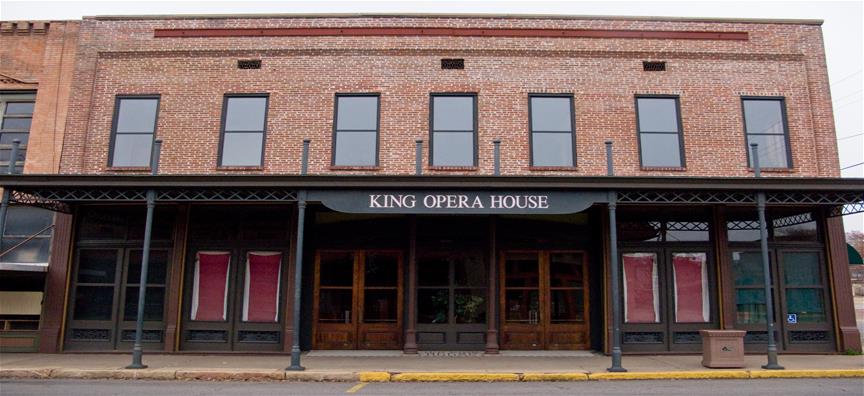
Walking the six blocks of the beautifully restored Van Buren main street is like stepping back a century in the past. Most of the buildings date from the late 1800’s and are home to all kinds of shops, restaurants, salons, and even a historic train station. Those who have not visited the town may yet be familiar with main street as it was featured in the movie Boloxi Blues as well as the mini-series The Blue and Grey. The King Opera House was and is the entertainment center for the district. It was built in 1891 and initially held several business including the newspaper office, and a billiard hall but was converted to an opera house by Henry King in 1901. Opera Houses were a common thing for aspiring towns that wished to demonstrate sophistication and culture by hosting traveling theatrical and entertainment groups.
The most popular period for the opera house was during the 1930’ when hometown celebrity Bob Burns had the theater named after him. The building was eventually bought and used by Malco theaters. In the 1990’s, the City of Van Buren purchased and rehabilitated the building to resemble the traditional opera houses found in the previous century. Since that time, it has been used for liver performance theater and musical acts, lectures, school events, and community gatherings.
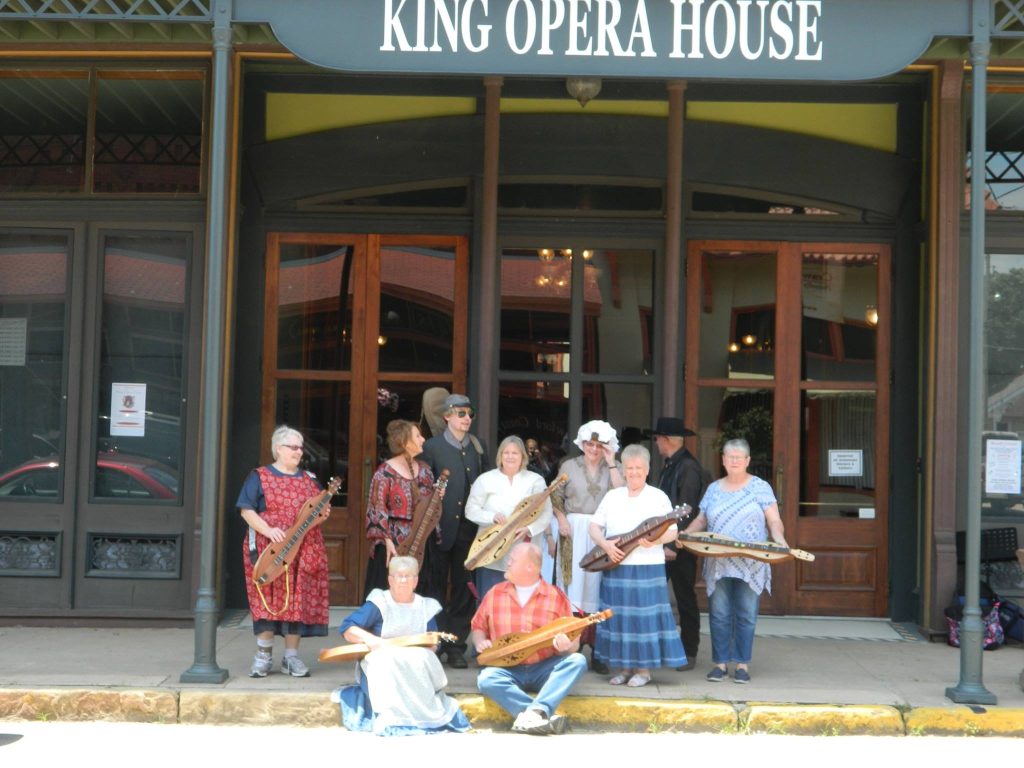
One of the biggest attractions to the building has nothing to do with its history or beauty- it is the story of the Opera House ghost. As the story goes, a young lady Allye Parchman, the daughter of a local doctor, became infatuated by a traveling actor by the name of Charles Tolson. The 17-year old girl, and daughter of an overbearing father, saw Charles Tolson as a chance to escape. It is not known for sure whether Tolson returned her affection but it is known that she intended to leave on the train with Tolson’s theatrical group. Dr. Parchman, hearing that his daughter was departing on the train, rushed to the station and used three shots from a 44 caliber revolver to end the life of Tolson. Parchman, a respected citizen, was tried and acquitted of murder.
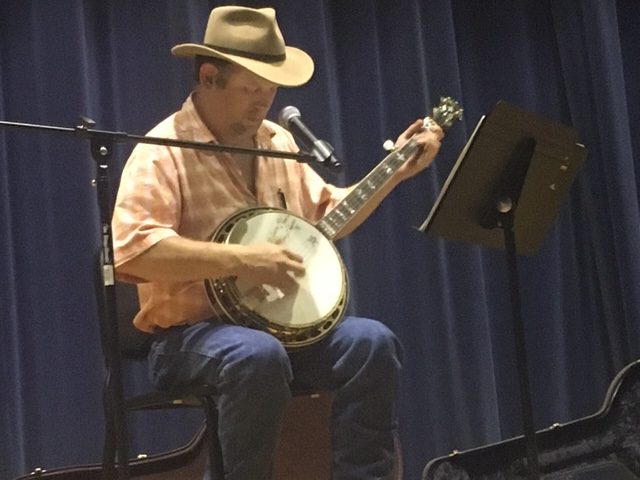
Today, many believe the ghost of Tolson roams the aisles of the theater. Several former employees describe the young top-hatted actor that stands in the shadows and disappears as one approaches. Other describe the sounds of footsteps approaching or the theater lights going on and off without help. Ghost hunters have investigated, several whom have declared their belief that the forlorn ghost of the past is doomed to forever linger in the building.
Its early in the morning as I prepare for the history workshop. Silence in the theater is deafening, only the caretaker and myself in the building. As I prepare my equipment in the semi-darkness I constantly remind myself that I do not believe in ghosts while, all the time, wishing those teachers would hurry up and arrive.
